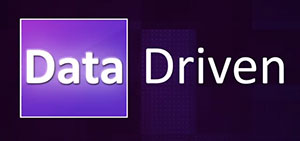Introducing Impact Quantum
In this first show, Frank explains the goal of the show, its purpose, and cat-based rating system.
Transcription (AI Generated)
Audio file
Transcript
Speaker 1
Hello, my name is Frank Lavigna and together with my Co host Andy Leonard we spent the last three years exploring the emerging fields of data science, machine learning and artificial intelligence. On our show. Data driven.
Speaker 1
Now it’s time to take a leap. A quantum leap. Yes, I know it was a cheesy TV show from the 80s and 90s, but I’m not talking about that. I’m talking about the leap into quantum computing. Quantum computing is about the change. The world as we know it.
Speaker 1
And if you think that’s hyperbole, think back to about 20 years ago before the iPhone, before the iPad. And for more recent example, think about what life was like before data science and AI became, well, household terms. I think quantum computing over the next decade is going to have the same type of impact.
Speaker 1
And that’s why this show is called impact quantum ’cause quantum computing and advances in quantum technology are going to radically change our day-to-day experience and interactions with technology and what’s possible.
Speaker 1
In this show, we will explore this emerging new field from the point of view from software engineers and data engineers. Because right now there’s a lot of material out there that presumes you have advanced knowledge of particle physics or advanced theoretical physics.
Speaker 1
Just like data science. A few years ago required a PhD in statistics or calculus. I think that there’s a huge opportunity here to help people.
Speaker 1
Re skill and build up their schools in what is never really going to become a new gold rush. A quantum algorithm, gold rush. And if you think that’s crazy. Yeah, maybe it is, but I really think that quantum computing is ability to add a third state to the binary right instead of being one and zero, it’s in a state of superposition where it could be both at the same time.
Speaker 1
Now that is kind of a big concept to get your head around and trust me, I have been fascinated with this since November of 2019 and I’m currently recording this in August of 2020.
Speaker 1
But don’t worry, we got you covered. Each show I will explain in my limited capacity.
Speaker 1
Each show I will explain a particular aspect of quantum computing and how it applies to software engineers or data engineers in a way that you know can kind of relate to us and how we think.
Speaker 1
Additionally, if I can get some experts on the topic to kind of come on the show when I can kind of quiz them and ask them type of questions that I have and I’m sure you have as well, I will do that now since the show will have kind of varying degrees of difficulty. We’re experimenting with a rating system that would rate the level of difficulty in terms of how.
Speaker 1
Easy or difficult, the subject matter will be in that show and just for fun, I’m calling them schrodinger’s right, so we’ll write each show from one to five Schrodinger’s an. I even have a cool little graphic of a cat that will show how difficult that is in the show notes, but I just want to let you know from the get go and the opening of the each episode. I will have a rating.
Speaker 1
Mentioning that this is 1 schroedinger, so you know it’s kind of easy. It’s kind of good in introductory information all the way to 5. Schrodinger’s where you know, maybe you shouldn’t be driving while you listen to it, ’cause there’s some pretty heavy concepts coming in, so I just want to make this my goal for this show is to make quantum computing accessible and quantum programming accessible for people who are already in software engineering.
Speaker 1
And people who are just getting started. This is going to be the next wave and I look forward to exploring and trailblazing with all of y’all. Thank you.
